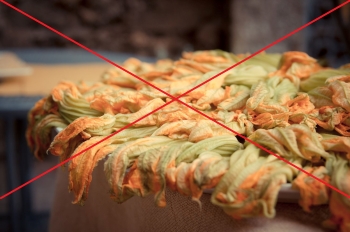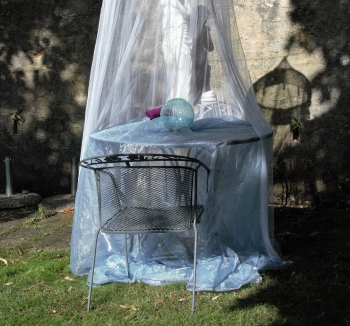Coronavirus Wars – The Decree Strikes Back
Weren’t we waiting for a good sequel? Ok, I know, good sequels are so rare… maybe Shrek 2, Shrek 2 was pretty good, and, well, Episode V is iconic… ok, let me go back on track here.
Not even a month ago I was writing about the reopening (you can find the post here), and we’re back with new regulations (which will expire on July 14th, so I’ll be back with more updates for sure). This is to be expected, because the Coronavirus situation evolves day by day, so it’s good to see changes in the approach.
Are the changes good?
Weeeellll…
Let’s see it together, shall we?
The decree is quite long and articulate, and actually describes all kinds of measures for work environments, restaurants, open-air activities and so on. Just write to me if you want to know something in particular, as it’s written in legalese Italian and, the Babel fish knows, it’s more or less as enjoyable as Vogon poetry.
With a quick summary, I can tell you that you still need the masks (even self-produced ones are good!) covering nose and mouth when you’re in indoor public spaces, and that you should always keep your social distancing (1 metre at least) with people you don’t live with.
Here are the general national rules for events.
Please note, every region has the power to slightly alter those, so keep in mind that these are, like, the bare minimum, but any region can decide to make them more severe in case it’s needed (the situation in Italy is very different even from province to province).
Ready? Here we go! For every ceremony and reception, it is necessary to:
▪ Prepare appropriate information on the preventive measures to be followed during the event.
So, brochures or posters and such have to be set out as a guide to make people aware of the rules they have to follow.
▪ Keep a list of the participants for a period of 14 days.
This is to make sure that, in case any person develops symptoms in the 14 days following the event, it is possible to warn all the others of the fact. I actually think they should be held longer, as it’s unlikely to warn everyone in a short amount of time if someone is found positive closer to the deadline.
▪ Re-organise the spaces, in order to guarantee an orderly access to the event venue, so to avoid gatherings of people, and ensure to keep at least one metre of distance between each person. If possible, implement separate paths for entrance and exit.
Social distancing is still a must, as is the necessity to make sure that people cross paths as little as possible; and everyone has to keep it in mind during the whole event.
▪ The tables must be placed so that there is at least 1 metre of separation between the guests, except for those people that, pursuant to the current regulations, are not subject to social distancing. This last element is referenced to the individual responsibility.
Ok, so, people living together can stay close to each other without masks, they can share the same table without the metre of distance, and such. The interesting part is the last sentence “This last element is referenced to the individual responsibility”, where it is in any case underlined that this is a responsibility of each person for themselves.
▪ Where it is possible, prefer the use of external spaces (e.g. Gardens, terraces), always respecting at least one metre of distancing.
Especially with the good weather and season, it’s pretty easy to follow this part, but I’m quite doubtful it’d be ideal in case of rain or for cold evenings (this June is not being especially warm, I have to say).
▪ Ensure an appropriate cleaning and disinfection of the internal spaces and of any existing equipment before each use.
This is something that I would expect professional vendors to do in any case, but it gets special attention now.
▪ Guests will have to wear the mask in the internal spaces (when they are not sitting at the table), or in the external spaces (in those cases in which it is not possible to keep at least one metre of distance). The service personnel who is in contact with the guests must wear masks and it is necessary to clean and sanitise the hand frequently with sanitising products.
This is pretty important: you cannot completely ditch the masks, even during a wedding. If any person gets up from the table, they will have to wear the mask. It will be absolutely necessary for any staff to wear masks and sanitise their hands often.
 ▪ It is possible to organise a buffet on the condition that the service staff is responsible for serving the meal, avoiding the guests to touch anything that has been displayed, and foreseeing, in any case, for guests and staff, the compulsory respect of the distance and the compulsory use of the masks in order to protect the airways.
▪ It is possible to organise a buffet on the condition that the service staff is responsible for serving the meal, avoiding the guests to touch anything that has been displayed, and foreseeing, in any case, for guests and staff, the compulsory respect of the distance and the compulsory use of the masks in order to protect the airways.
The self-service mode can, in case, be allowed for buffets made exclusively with packaged, single serving products. In particular, the distribution of the meals must happen with organisation modes that avoid gatherings to form, even through a re-organisation of the spaces in relation to the dimension of the venue; in any case, there is the need to evaluate proper measures (e.g. signs on the floor, barriers, etc) to guarantee the interpersonal distancing of at least one metre during the queue to access the buffet.
This means that queues need to be orderly, you’ll have signs on the floor, and/or physical barriers, to make sure both guests and staff are as safe as it’s possible. Food cannot be artistically displayed as before, the portions are to be handed out by the waiters, in a way that makes sure that guests don’t touch anything but their dish, or in pre-packaged, single serving portions. It’s quite a big change compared to how we were used to doing things until now.
▪ For any musical show performed by professionals, please consult the provisions in the specific sheet. In any case, it is compulsory to avoid any activity or chance to gather that makes it impossible to keep the interpersonal distance of 1 metre.
Musicians will need more space. In some regional regulations, it’s also mentioned that it’s possible to dance, but keeping at least two metres between people not living together (for example, in Apulia, or it is a rule for discos in Tuscany).
Now, this all seems, all in all, pretty straightforward, doesn’t it? Wash your hands, use the mask, yada yada dada, nothing new compared to the last couple of months. Goodness, the things we’re getting used to.
But… I’m a planner, and I always try to foresee the unforeseeable, and especially: the worst-case scenario. I know, we don’t like to think about that, but they happen: for example, at the beginning of June, 31 people ended up in quarantine because the bride tested positive for Coronavirus a few days after the wedding. So, yeah, I’d really love to reassure you all, but I actually prefer you safe and healthy.
In particular, the thought that came to my mind was: “Who is responsible for the compliance to these rules?”.
So, I did the only logical thing, I took my copy of the Hitchhiker’s Guide to the… nope. Alas, the Hitchhiker’s Guide to the Galaxy can’t help us here… ok, the next best thing then: I took the phone and called my trusted lawyer: he’s the one that makes sure that all my contracts are up to date and have all the proper guarantees for you.
It was a very interesting chat, that stressed out the need to be very well prepared. So, this is basically what he told me.
Let’s keep in mind that this is a completely new situation, so these are not truths set in stone, but it’s more like food for thought for you and your public, following what the law currently says. First things first, we have to consider who the “harmed party” might be, and in this case, the first possible “harmed party” are the guests. Meanwhile, the Spouses, as primary organisers, are the ones who are held liable towards their guests.
In a wedding, though, the Spouses will entrust the vendors to take care of some of these regulations (distance between tables, for example), so, as second step in liability, the vendors will be held liable towards 1) The spouses, 2) any person attending the event, 3) their own employees.
In layman terms, it means that the spouses first and the vendors second are responsible for the compliance to the regulations.
This startled me a bit: ok, so, if the spouses and vendors are at least co-liable for these rules to be respected, can they force people to respect them?
And… well, they can ask the person to comply, sure, but if the person who is asked won’t comply, then… only the law enforcement can actually enforce laws, and thus, actually get whomever doesn’t follow the rules out of the event.
Now, we might think this is a limit case, but… it’s actually something that can happen. Especially when alcohol is involved.
So, what I’m saying now is not “don’t get married”; but take everything into consideration before reaching a decision, and make sure that everyone’s responsibilities are clear before the event, so that everything can run smoothly.
As a Wedding Planner, my only wish is that you have the best possible event, and that it stays as a beautiful memory for the rest of your life.
Do not hesitate to contact your vendors regarding the Coronavirus topic, open the conversation as soon as possible if you plan to go on with a wedding in the next four weeks.
As for what the future entails, I couldn’t possibly say. We’ll have to see how the situation evolves, and how the Italian government decides to handle it.
How I’d like to have a crystal ball to see the future! Or, even better, the Nice and Accurate Prophecies of Agnes Nutter. Pity Anathema had to burn the sequel, now, that would have been a sequel to behold.
In any case, I’ll be following our Gazzetta Ufficiale closely, and keep you updated on the situation.
And if you have questions, doubts, or want to make sure you have someone in your corner handling the scary stuff, click on the reassuring blue button (to be read: at the end of the article) below to book a consultation!
Click here to book your consultation!
Useful Links:
In photo: Stardust Atelier’s Mask

